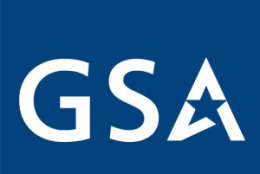bid protest
-
The Homeland Security Department’s “motion to dismiss” outlined in honest detail what went wrong with its small business procurement known as Flexible Agile Support for the Homeland (FLASH).
June 05, 2017 -
After two sets of awards and more than 20 protests, the Homeland Security Department is going back to the drawing board with its FLASH small business vehicle.
May 31, 2017 -
The General Services Administration’s $50 billion Enterprise Infrastructure Solutions (EIS) telecommunications contract is back under a pre-award protest while DHS’s agile contract known as FLASH faces 12 complaints.
May 01, 2017 -
The Office of Personnel Management’s National Background Investigations Bureau (NBIB) awarded a contractor for support services in January, but now is facing complaints from two unsuccessful bidders.
February 27, 2017 -
Fixed price contracts don't always have to go to the lowest bidder, not if a higher priced bidder offers more value. That's the gist of a landmark decision from the Government Accountability Office. It ruled against protesters of the Alliant 2 governmentwide acquisition contract the General Services Administration is trying to establish. Procurement attorney Joseph Petrillo of Petrillo and Powell joins Federal Drive with Tom Temin to explain the decision.
January 19, 2017 -
The Government Accountability Office’s decision to deny four protests of GSA’s Alliant 2 contracts for IT services could end up being a landmark ruling.
January 17, 2017 -
Companies often challenge contract awards when the people being proposed by the winner don't meet the qualifications the agency set forth in the first place. That's what happened with one services contractor. Procurement attorney Joe Petrillo of Petrillo and Powell tells Federal Drive with Tom Temin the agency's response made things even more drawn out.
December 01, 2016 -
The Defense Department has cited lower health care costs as one of the benefits of the $58 billion in contract awards it issued in July to manage its TRICARE health care system. But in at least one of the two contracts, price wasn’t the driving factor.
November 28, 2016 -
The Government Accountability Office has denied nine out of nine bid protests filed by health insurers who came out on the losing end of the Defense Department’s $58 billion in contract awards to run the military's managed health care system.
November 15, 2016 -
Companies can no longer protest civilian agency task orders, which is an odd situation given that Congress retained the ability of defense contractors to protest to the Government Accountability Office task orders larger than $10 million. The House would restore things, the Senate would not. Terry O'Connor, director of government contracts at the law firm Berenzweig Leonard, joins Federal Drive with Tom Temin to explain what contractors can do.
October 27, 2016 -
A legitimate complaint against government wrongdoing, or merely a nuisance? In this case, the Government Accountability Office says it was clearly the latter. GAO barred a company called Latvian Connection from filing bid protests. That was after the company filed 150 of them in the same year. Federal contracting specialist Steve Koprince, managing partner of Koprince Law, about the highly unusual case on Federal Drive with Tom Temin.
October 13, 2016 -
Industry can no longer protest civilian agency task and delivery orders worth more than $10 million to the GAO after the Senate didn’t pass a bill that would’ve extended the authority permanently.
October 11, 2016 -
Vendors who won a spot on the Human Capital and Training Solutions (HCaTs) contracts received the notice to proceed, but the Alliant 2 solicitation faces another protest.
September 26, 2016 -
The Oversight and Government Reform Committee unanimously approved the Transit Benefits Modernization Act to let federal employees in the D.C. metro area user “digital transportation companies” such as Uber or Lyft, to get to work during the subway repair effort.
September 15, 2016 -
GAO explicitly rejected the claim that the agency shouldn't have used LPTA, saying the decision was justified because ENCORE is “a mature program with a substantial commercial application.”
September 06, 2016













